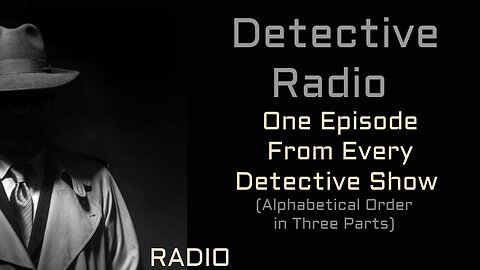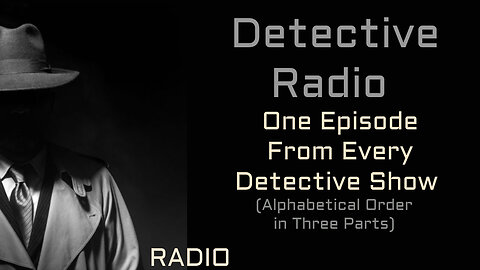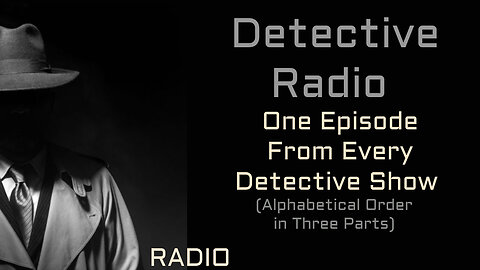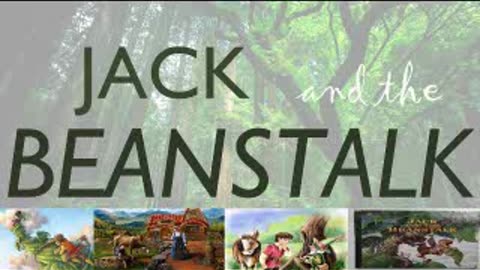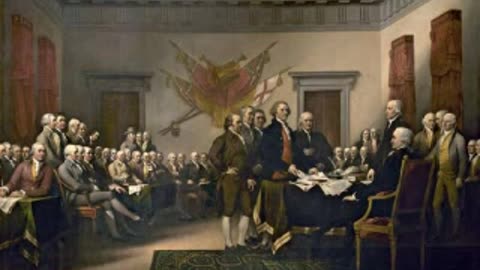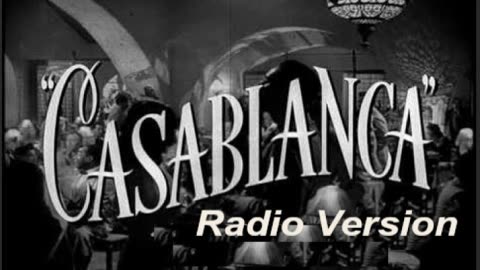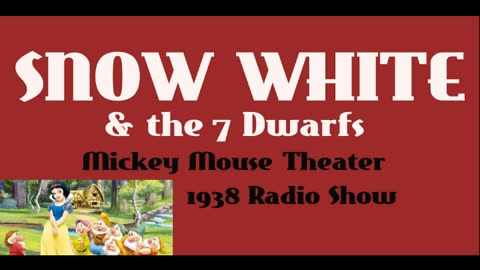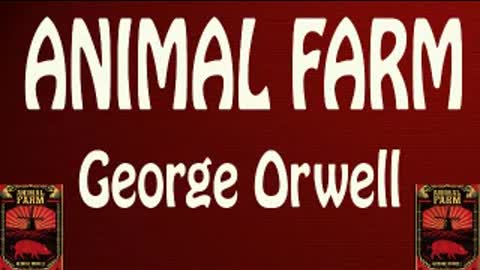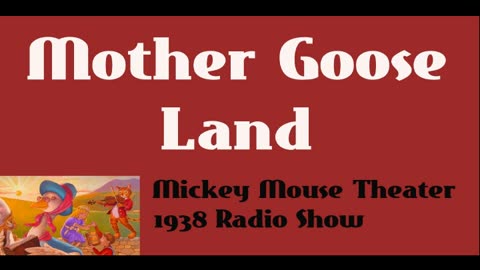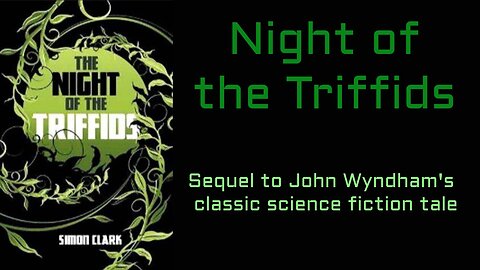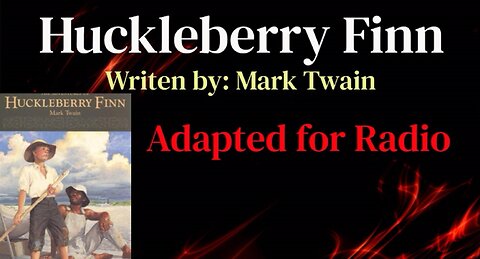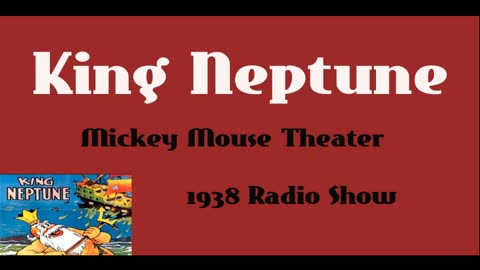Premium Only Content
This video is only available to Rumble Premium subscribers. Subscribe to
enjoy exclusive content and ad-free viewing.
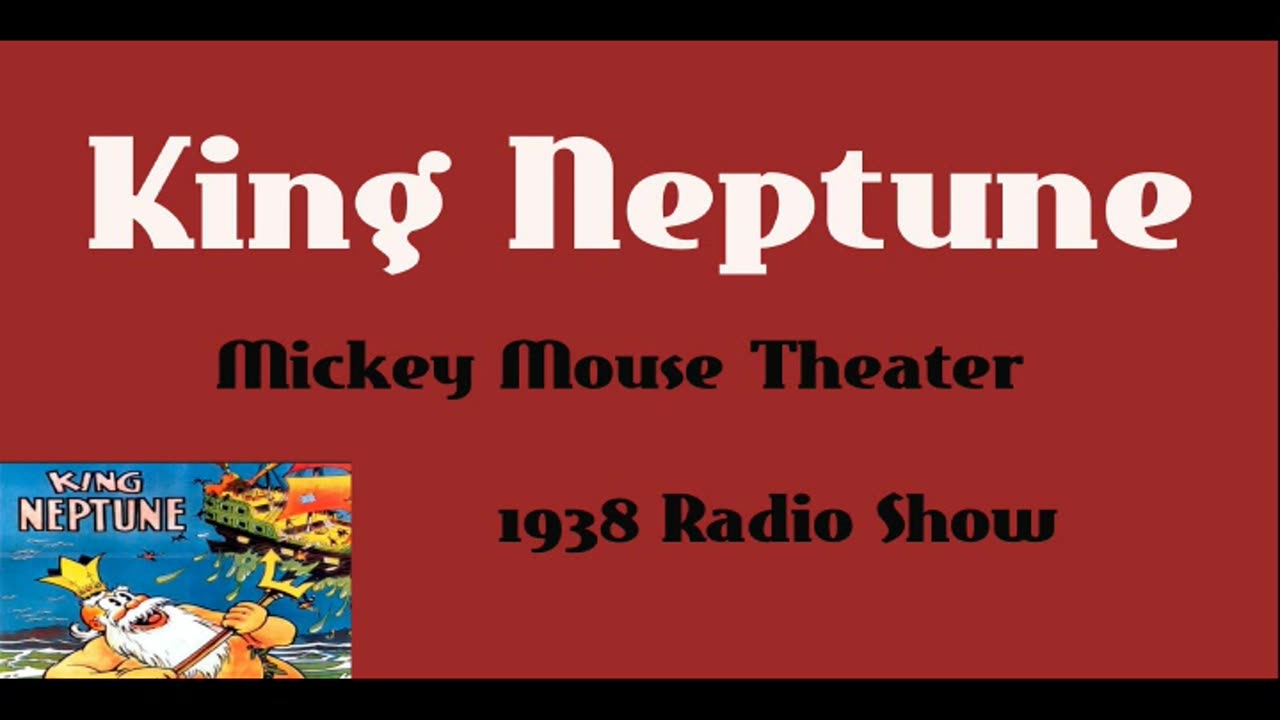
Radio One Off's
TeslaWirelessRadio
- 25 / 26
1
King Solomon's Mines
TeslaWirelessRadio
King Solomon's Mines (1885) is a popular novel by the English Victorian adventure writer and fabulist Sir H. Rider Haggard. It tells of an expedition through an unexplored region of Africa by a group of adventurers led by Allan Quatermain, searching for the missing brother of one of the party. It is one of the first English adventure novels set in Africa and is considered to be the genesis of the lost world literary genre. Haggard dedicated this book to his childhood idol Humphry Davy.
Background
The book was first published in September 1885 amid considerable fanfare, with billboards and posters around London announcing, "The Most Amazing Book Ever Written". It became an immediate best seller. By the late 19th century, explorers were uncovering ancient civilizations and their remains around the world, such as Egypt's Valley of the Kings and the empire of Assyria. Inner Africa remained largely unexplored and King Solomon's Mines, one of the first novels of African adventure published in English, captured the public's imagination.
The "King Solomon" of the book's title is the legendary Biblical king renowned both for his wisdom and for his wealth. A number of sites have been suggested as the location of his mines, including the workings at the Timna valley near Eilat. Research published in September 2013 has shown that this site was in use during the 10th century BC as a copper mine possibly by the Edomites, who, the Bible reports, were rivals of and frequently at war with King Solomon.
The Bible does refer to King Solomon having sent out, in partnership with his Phoenician allies, trading expeditions along the Red Sea, which brought exotic wares and animals from Africa to Jerusalem. Muslim traders in Sofala told Portuguese travelers in the sixteenth and seventeenth centuries that the region's gold mines belonged to King Solomon and that he built the now-ruined Great Zimbabwe.
Haggard knew Africa well, having travelled deep within the continent during the Anglo-Zulu War and the First Boer War, where he had been impressed by South Africa's vast mineral wealth and by the ruins of ancient lost cities, such as Great Zimbabwe, being uncovered. His original Allan Quatermain character was based in large part on Frederick Selous, the British white hunter and explorer of Africa.[8][9] Selous's real-life experiences provided Haggard with the background and inspiration for this and many later stories.
Haggard also owed a considerable debt to Joseph Thomson, the Scottish explorer whose book Through Masai Land was published in 1885. Thomson claimed he had terrified warriors in Kenya by taking out his false teeth and claiming to be a magician, just as Captain Good does in King Solomon's Mines. Contemporary James Runciman wrote an article entitled King Plagiarism and His Court, interpreted as accusing Haggard of plagiarism for this. Thomson was so outraged at Haggard's alleged plagiarism that he published a novel of his own, Ulu: an African Romance, which, however, failed to sell.
Plot summary
"To those who enter the hall of dead"; Walter Paget
Allan Quatermain, an adventurer and white hunter based in the African city of Durban, is approached by aristocrat Sir Henry Curtis and his friend Captain Good, seeking his help finding Sir Henry's brother, who was last seen travelling north into the unexplored interior on a quest for the fabled King Solomon's Mines. Quatermain has a map purporting to lead to the mines but had never taken it seriously. He agrees to lead an expedition in return for a share of the treasure, or a stipend for his son if he is killed along the way. He has little hope they will return alive, but reasons that he has already outlived most people in his profession, so dying in this manner at least ensures his son will be provided for. They also take along a native, Umbopa, who seems more regal and well-spoken than most porters of his class, but who is anxious to join the party.
Radio
Kenneth Colley starred as Allan Quatermain in a 1990 BBC Radio 4 adaptation.
A two-part BBC Radio 4 adaptation was broadcast in April 2017 starring Tim McInnerny as Allan Quatermain.
2
Detective Show Radio (One Ep of Every Show) Vol 1
TeslaWirelessRadio
This is a collection of all the old radio detective shows. There is a single episode of each show. They are in alphabetical order and their are 3 parts total.
3
Detective Show Radio (One Ep of Every Show) Vol 2
TeslaWirelessRadio
This is a collection of all the old radio detective shows. There is a single episode of each show. They are in alphabetical order and their are 3 parts total.
4
Detective Radio (One Ep of Every Detective Show) Vol 3
TeslaWirelessRadio
This is a collection of all the old radio detective shows. There is a single episode of each show. They are in alphabetical order and in 3 parts.
Let me know if I missed any.
5
She - A History of Adventure by H. Rider Haggard
TeslaWirelessRadio
She – H. Rider Haggard
Ludwig Holly and his ward Leo's quest for the truth behind legend of Leo's ancestry takes them to Africa.
CAST:
Ludwig Holly ...... Tim McInnerny
Leo ...... Oliver Chris
Ayesha ...... Mia Soteriou
Job ...... Howard Coggins
Billali ...... Ben Onwukwe
Amenartas/Ustane ...... Janice Acquah
Vincey ...... Tom Sherman
Agarah ...... Damian Lynch
Young Leo ...... Oliver Baynham
Composed music by Elizabeth Purnell.
Producer: Sara Davies
First broadcast on BBC Radio 4 in 2006.
1. Episode 1
Ludwig Holly and his ward Leo's quest for the truth behind legend of Leo's ancestry takes them to Africa.
Here they find Ayesha, 2000 years old but beautiful beyond all description, despotically ruling her secret kingdom.
2. Episode 2
Ayesha, the queen whose beauty enthrals and terrifies all who see her, believes Leo to be the lover for whom she has waited 2000 years. She takes Leo and his guardian Holly deep into the mountains to the Pillar of Life.
Hattie Naylor's adaptation of H Rider Haggard's 19th century best-seller set in a mysterious African kingdom explores the complex themes of imperial arrogance, sexual obsession, power and isolation that lie behind the high adventure.
She, subtitled A History of Adventure, is a novel by the English writer H. Rider Haggard, published in book form in 1887 following serialization in The Graphic magazine between October 1886 and January 1887. She was extraordinarily popular upon its release and has never been out of print.
The story is a first-person narrative which follows the journey of Horace Holly and his ward Leo Vincey to a lost kingdom in the African interior. They encounter a native people and a mysterious white queen named Ayesha who reigns as the all-powerful "She" or "She-who-must-be-obeyed". Haggard developed many of the conventions of the lost world genre which countless authors have emulated.
Haggard was "part of the literary reaction against domestic realism that has been called a romance revival." Other writers following this trend were Robert Louis Stevenson, George MacDonald, and William Morris. Haggard was inspired by his experiences living in South Africa for seven years (1875–1882) working at the highest levels of the British colonial administration. In the figure of She, the novel notably explored themes of female authority and feminine behavior. Its representation of womanhood has received both praise and criticism.
Plot
Horace Holly, a young Cambridge University professor, is visited by Vincey, a colleague who, convinced that he will soon die, charges him with the task of raising his young son, Leo. He gives Holly a locked iron box, with instructions that it is not to be opened until Leo's 25th birthday. Holly agrees. Vincey is found dead the next day, and Holly raises the boy as his own. When the box is opened they discover the ancient "Sherd of Amenartas". Holly, Leo, and their servant, Job, follow instructions on the Sherd and travel to eastern Africa. After surviving a shipwreck, they and their Arab captain, Mahomed, journey into the African interior where they are captured by the savage Amahagger people. The adventurers learn that the natives are ruled by a fearsome white queen who is worshipped as Hiya or "She-who-must-be-obeyed".
6
The Raven by Edgar Allan Poe
TeslaWirelessRadio
The Raven" is a narrative poem by American writer Edgar Allan Poe. First published in January 1845, the poem is often noted for its musicality, stylized language, and supernatural atmosphere. Sitting on a bust of Pallas, the raven seems to further distress the protagonist with its constant repetition of the word "Nevermore". The poem makes use of folk, mythological, religious, and classical references.
Poe claimed to have written the poem logically and methodically, with the intention to create a poem that would appeal to both critical and popular tastes, as he explained in his 1846 follow-up essay, "The Philosophy of Composition". The poem was inspired in part by a talking raven in the novel Barnaby Rudge: A Tale of the Riots of Eighty by Charles Dickens.[1] Poe borrows the complex rhythm and meter of Elizabeth Barrett's poem "Lady Geraldine's Courtship", and makes use of internal rhyme as well as alliteration throughout.
"The Raven" was first attributed to Poe in print in the New York Evening Mirror on January 29, 1845. Its publication made Poe popular in his lifetime, although it did not bring him much financial success. The poem was soon reprinted, parodied, and illustrated. Critical opinion is divided as to the poem's literary status, but it nevertheless remains one of the most famous poems ever written
The Raven
byEdgar Allan Poe
Once upon a midnight dreary, while I pondered, weak and weary,
Over many a quaint and curious volume of forgotten lore—
While I nodded, nearly napping, suddenly there came a tapping,
As of some one gently rapping, rapping at my chamber door—
“ ’Tis some visiter,” I muttered, “tapping at my chamber door—
Only this and nothing more.”
Ah, distinctly I remember it was in the bleak December;
And each separate dying ember wrought its ghost upon the floor.
Eagerly I wished the morrow;—vainly I had sought to borrow
From my books surcease of sorrow—sorrow for the lost Lenore—
For the rare and radiant maiden whom the angels name Lenore—
Nameless here for evermore.
And the silken, sad, uncertain rustling of each purple curtain
Thrilled me—filled me with fantastic terrors never felt before;
So that now, to still the beating of my heart, I stood repeating
“ ’Tis some visiter entreating entrance at my chamber door—
Some late visiter entreating entrance at my chamber door;—
This it is and nothing more.”
Presently my soul grew stronger; hesitating then no longer,
”Sir,” said I, “or Madam, truly your forgiveness I implore;
But the fact is I was napping, and so gently you came rapping,
And so faintly you came tapping, tapping at my chamber door,
That I scarce was sure I heard you”—here I opened wide the door;—
Continued…………………..
The raven, Edgar Allan Poe, the raven old radio, old radio, old time radio the raven, poetry, tesla wireless radio,
7
Jack & the Beanstalk (Radio Version)
TeslaWirelessRadio
Once upon a time there lived a poor widow and her son Jack. One day, Jack’s mother told him to sell their only cow. Jack went to the market and on the way, he met a man who wanted to buy his cow. Jack asked, “What will you give me in return for my cow?” The man answered, “I will give you five magic beans!” Jack took the magic beans and gave the man the cow. But when he reached home, Jack’s mother was very angry. She said, “You fool! He took away your cow and gave you some beans!” She threw the beans out of the window. Jack was very sad and went to sleep without dinner.
The next day, when Jack woke up in the morning and looked out of the window, he saw that a huge beanstalk had grown from his magic beans! He climbed up the beanstalk and reached a kingdom in the sky. There lived a giant and his wife. Jack went inside the house and found the giant’s wife in the kitchen. Jack said, “Could you please give me something to eat? I am so hungry!” The kind wife gave him bread and some milk.
While he was eating, the giant came home. The giant was very big and looked very fearsome. Jack was terrified and went and hid inside. The giant cried, “Fee-fi-fo-fum, I smell the blood of an Englishman. Be he alive, or be he dead, I’ll grind his bones to make my bread!” The wife said, “There is no boy in here!” So, the giant ate his food and then went to his room. He took out his sacks of gold coins, counted them and kept them aside. Then he went to sleep. In the night, Jack crept out of his hiding place, took one sack of gold coins and climbed down the beanstalk. At home, he gave the coins to his mother. His mother was very happy, and they lived well for some time.
Jack and the Beanstalk Fee Fi Fo Fum! Climbed the beanstalk and went to the giant’s house again. Once again, Jack asked the giant’s wife for food, but while he was eating the giant returned. Jack leapt up in fright and went and hid under the bed. The giant cried, “Fee-fifo-fum, I smell the blood of an Englishman. Be he alive, or be he dead, I’ll grind his bones to make my bread!” The wife said, “There is no boy in here!” The giant ate his food and went to his room. There, he took out a hen. He shouted, “Lay!” and the hen laid a golden egg. When the giant fell asleep, Jack took the hen and climbed down the beanstalk. Jack’s mother was very happy with him.
After some days, Jack once again climbed the beanstalk and went to the giant’s castle. For the third time, Jack met the giant’s wife and asked for some food. Once again, the giant’s wife gave him bread and milk. But while Jack was eating, the giant came home. “Fee-fi-fo-fum, I smell the blood of an Englishman. Be he alive, or be he dead, I’ll grind his bones to make my bread!” cried the giant. “Don’t be silly! There is no boy in here!” said his wife.
The giant had a magical harp that could play beautiful songs. While the giant slept, Jack took the harp and was about to leave. Suddenly, the magic harp cried, “Help master! A boy is stealing me!” The giant woke up and saw Jack with the harp. Furious, he ran after Jack. But Jack was too fast for him. He ran down the beanstalk and reached home. The giant followed him down. Jack quickly ran inside his house and fetched an axe. He began to chop the beanstalk. The giant fell and died.
Jack and his mother were now very rich, and they lived happily ever after.
8
The Declaration of Independence
TeslaWirelessRadio
Declaration of Independence, in U.S. history, document that was approved by the Continental Congress on July 4, 1776, and that announced the separation of 13 North American British colonies from Great Britain.
It explained why the Congress on July 2 “unanimously” by the votes of 12 colonies (with New York abstaining) had resolved that “these United Colonies are, and of right ought to be Free and Independent States.”
Accordingly, the day on which final separation was officially voted was July 2, although the 4th, the day on which the Declaration of Independence was adopted, has always been celebrated in the United States as the great national holiday—the Fourth of July, or Independence Day.
9
The Great Gatsby (BBC Radio) 2012
TeslaWirelessRadio
First broadcast: Sun 6th May 2012, 15:00 on BBC Radio 4 FM
F. Scott Fitzgerald's seminal novel, a portrait of the Jazz Age in all of its decadence and excess, is perhaps the greatest book on the fallibility of the American dream.
Nick Carraway arrives in Long Island and is reacquainted with his distant cousin, Daisy Buchanan. He falls in with her wealthy crowd. His neighbor, the self-made and self-invented millionaire, Gatsby, is the man who has everything - but one thing will always be out of his reach.
Nick has fallen in with the wealthy crowd on Long Island. His neighbor, Gatsby, asks Nick to engineer a meeting with his lost love, Nick's cousin, Daisy.
Dramatized by Robert Forrest
[Two episodes combined as one]
Nick ..... Bryan Dick
Gatsby ..... Andrew Scott
Tom ..... Andrew Buchan
Daisy ..... Pippa Bennett-Warner
Jordan ..... Melody Grove
Wolfsheim ..... Karl Johnson
Klipspringer ..... Sam Dale
Wilson ..... Gerard McDermott
Myrtle ..... Susie Riddell
Catherine ..... Tracy Wiles
Chester ..... Patrick Brennan
Lucille ..... Christine Absalom
Alice ..... Amaka Okafor
Director: Gaynor Macfarlane
10
F. Scott Fitzgerald - The Lost Stories
TeslaWirelessRadio
The Lost Stories (Omnibus)
A selection of stories taken from a collection of previously unpublished work by F Scott Fitzgerald, I'd Die For You: and Other Lost Stories.
01 Introduction & Thank You for the Light
Read by Laurel Lefkow and Karen Bartke
02 The Couple
Finn Den Hertog reads a previously unpublished tale about the disintegration of a young marriage.
03 Salute to Lucy and Elsie
Stuart Milligan reads a previously unpublished story about honor, morals and the gulf between generations.
Romance, parties, cocktails, and glamour - as a young writer in the 1920s F Scott Fitzgerald gave the magazines what they wanted. He had little choice; short stories were his bread and butter. But as the author matured, he yearned to explore darker territory.
This desire wasn't cushioned by wealth; The Great Gatsby hadn't sold well and as the Depression crunched in the early 30s, Fitzgerald was hit by large medical bills for both him and his wife Zelda. Despite the financial pressures he resisted the easy censorship requested by editors, who balked at Fitzgerald's portrayal of confusing generational freedoms, sex before marriage, divorce and working women.
Growing increasingly uncompromising about deletions and sanitizations, Fitzgerald preferred to let these stories lie in wait until their time came.
Producer: Eilidh McCreadie
1
comment
11
A Christmas Carol (1995) Quicksilver Radio Theater
TeslaWirelessRadio
A radio adaptation of Charles Dickens' seasonal classic, adapted by Craig Wichman and performed by the Quicksilver Radio Theater.
Narrator/Joe ... Anthony Cinelli
Ebenezer Scrooge ... Craig Wichman
Bob Cratchit ... John Prave
Fred/Fezziwig ... Joseph Franchini
Marley's Ghost/Ghost of Christmas Present ... Tony Scheinman
Ghost of Christmas Past ... Deborah Barta
Belle ... Jodi Bothelo
Mrs. Cratchit/Mrs. Dilber ... Ghislaine Nichols
Tiny Tim ... Elizabeth Stull
Other Parts were played by members of the cast.
Music ... Mark Hollman
Sound ... Dave Nolan, Clyde Baldo
Produced by Craig Wichman
Directed by Jay Stern
Originally broadcast on WBAI-FM New York City 24 & 25 December 1995
A Christmas Carol. In Prose. Being a Ghost Story of Christmas, commonly known as A Christmas Carol, is a novella by Charles Dickens, first published in London by Chapman & Hall in 1843 and illustrated by John Leech.
A Christmas Carol recounts the story of Ebenezer Scrooge, an elderly miser who is visited by the ghost of his former business partner Jacob Marley and the spirits of Christmas Past, Present and Yet to Come. After their visits, Scrooge is transformed into a kinder, gentler man.
Dickens wrote A Christmas Carol during a period when the British were exploring and re-evaluating past Christmas traditions, including carols, and newer customs such as cards and Christmas trees.
12
A Christmas Carol (Dec 25, 1965 )
TeslaWirelessRadio
Plot
The book is divided into five chapters, which Dickens titled "staves".
Stave one
A Christmas Carol opens on a bleak, cold Christmas Eve in London, seven years after the death of Ebenezer Scrooge's business partner, Jacob Marley. Scrooge, an ageing miser, dislikes Christmas and refuses a dinner invitation from his nephew Fred—the son of Fan, Scrooge's dead sister. He turns away two men who seek a donation from him to provide food and heating for the poor and only grudgingly allows his overworked, underpaid clerk, Bob Cratchit, Christmas Day off with pay to conform to the social custom.
That night Scrooge is visited at home by Marley's ghost, who wanders the Earth entwined by heavy chains and money boxes forged during a lifetime of greed and selfishness. Marley tells Scrooge that he has a single chance to avoid the same fate: he will be visited by three spirits and must listen or be cursed to carry much heavier chains of his own.
Stave two
The first spirit, the Ghost of Christmas Past, takes Scrooge to Christmas scenes of Scrooge's boyhood, reminding him of a time when he was more innocent. The scenes reveal Scrooge's lonely childhood at boarding school, his relationship with his beloved sister Fan, and a Christmas party hosted by his first employer, Mr Fezziwig, who treated him like a son. Scrooge's neglected fiancée Belle is shown ending their relationship, as she realises that he will never love her as much as he loves money. Finally, they visit a now-married Belle with her large, happy family on the Christmas Eve that Marley died. Scrooge, upset by hearing Belle's description of the man that he has become, demands that the ghost remove him from the house.
Stave three
The second spirit, the Ghost of Christmas Present, takes Scrooge to a joyous market with people buying the makings of Christmas dinner. The Ghost then takes Scrooge to Bob Cratchit's family feast and introduces his youngest son, Tiny Tim, a happy boy who is seriously ill. The spirit informs Scrooge that Tiny Tim will die unless the course of events changes. Afterwards, the spirit and Scrooge travel to celebrations of Christmas in a miner's cottage, in a lighthouse, and on a ship at sea. Scrooge and the ghost then visit Fred's Christmas party. Before disappearing, the spirit shows Scrooge two hideous, emaciated children named Ignorance and Want. He tells Scrooge to beware them and mocks Scrooge's concern for their welfare.
Stave four
Black and white drawing of Scrooge and Bob Cratchit having a drink in front of a large fire
Scrooge and Bob Cratchit celebrate Christmas in an illustration from stave five of the original edition, 1843.
The third spirit, the Ghost of Christmas Yet to Come, shows Scrooge a Christmas Day in the future. The silent ghost reveals scenes involving the death of a disliked man whose funeral is attended by local businessmen only on condition that lunch is provided. His charwoman, laundress and the local undertaker steal his possessions to sell to a fence. When he asks the spirit to show a single person who feels emotion over his death, he is only given the pleasure of a poor couple who rejoice that his death gives them more time to put their finances in order. When Scrooge asks to see tenderness connected with any death, the ghost shows him Bob Cratchit and his family mourning the death of Tiny Tim. The ghost then allows Scrooge to see a neglected grave, with a tombstone bearing Scrooge's name. Sobbing, Scrooge pledges to change his ways.
Stave five
Scrooge awakens on Christmas morning a changed man. He makes a large donation to the charity he rejected the previous day, anonymously sends a large turkey to the Cratchit home for Christmas dinner and spends the afternoon with Fred's family. The following day he gives Cratchit an increase in pay, and begins to become a father figure to Tiny Tim. From then on Scrooge treats everyone with kindness, generosity and compassion, embodying the spirit of Christmas.
13
Casablanca (Lux Radio Version)
TeslaWirelessRadio
In December 1941, American expatriate Rick Blaine owns a nightclub and gambling den in Casablanca. "Rick's Café Américain" attracts a varied clientele, including Vichy French and Nazi German officials, refugees desperate to reach the neutral United States, and those who prey on them. Although Rick professes to be neutral in all matters, he ran guns to Ethiopia in 1935 and fought on the Loyalist side in the Spanish Civil War.
Petty crook Ugarte boasts to Rick of letters of transit obtained by murdering two German couriers. The papers allow the bearers to travel freely around German-occupied Europe and to neutral Portugal. Ugarte plans to sell them at the club and persuades Rick to hold them for him. Before he can meet his contact, Ugarte is arrested by the local police under Captain Louis Renault, the unabashedly corrupt prefect of police. Ugarte dies in custody without revealing that Rick has the letters.
Then the reason for Rick's cynical nature—former lover Ilsa Lund—enters his establishment. Spotting Rick's friend and house pianist, Sam, Ilsa asks him to play "As Time Goes By". Rick storms over, furious that Sam disobeyed his order never to perform that song again, and is stunned to see Ilsa. She is accompanied by her husband, Victor Laszlo, a renowned fugitive Czechoslovak Resistance leader. A flashback reveals Ilsa left Rick without explanation when the couple were planning to flee as the German army neared Paris, embittering Rick. Laszlo and Ilsa need the letters to escape, while German Major Strasser arrives in Casablanca to prevent just that.
Adaptations
On radio, there were several adaptations of the film. The two best-known are a thirty-minute adaptation on The Screen Guild Theater on April 26, 1943, starring Bogart, Bergman, and Henreid, and an hour-long version on the Lux Radio Theater on January 24, 1944, featuring Alan Ladd as Rick, Hedy Lamarr as Ilsa, and John Loder as Laszlo. Two other thirty-minute adaptations were aired, one on Philip Morris Playhouse on September 3, 1943, and the other on Theater of Romance on December 19, 1944, in which Dooley Wilson reprised his role as Sam.
14
King Kong Radio (1938) Radio Version
TeslaWirelessRadio
King Kong is a film monster, resembling an enormous gorilla, that has appeared in various media since 1933. Kong has been dubbed the Eighth Wonder of the World, a phrase commonly used within the films.
The character first appeared in the novelization of the 1933 film King Kong from RKO Pictures, with the film premiering a little over two months later. The film received universal acclaim upon its initial release and re-releases.
15
Mickey Mouse Theater (1938) Snow White & the 7 Dwarfs
TeslaWirelessRadio
Snow White and the Seven Dwarfs is a 1937 American animated musical fantasy film produced by Walt Disney Productions and released by RKO Radio Pictures. Based on the 1812 German fairy tale by the Brothers Grimm.
It is the first full-length traditionally animated feature film and the first Disney animated feature film. The story was adapted by storyboard artists Dorothy Ann Blank, Richard Creedon, Merrill De Maris, Otto Englander, Earl Hurd, Dick Rickard, Ted Sears and Webb Smith. David Hand was the supervising director, while William Cottrell, Wilfred Jackson, Larry Morey, Perce Pearce, and Ben Sharpsteen directed the film's individual sequences.
Plot
Having lost both of her parents at a young age, Snow White is a princess living with her wicked and cold-hearted stepmother, the Queen. Fearing that Snow White's beauty will outshine her own, the Queen forces her to work as a scullery maid and asks her Magic Mirror daily "who is the fairest one of all." For years, the mirror always answers that the Queen is, pleasing her.
16
George Orwell - Animal Farm (Audio Book) (Perfect Narration Voice!)
TeslaWirelessRadio
Animal Farm is an allegorical novella by George Orwell, first published in England on 17 August 1945. The book tells the story of a group of farm animals who rebel against their human farmer, hoping to create a society where the animals can be equal, free, and happy. Ultimately, however, the rebellion is betrayed, and the farm ends up in a state as bad as it was before, under the dictatorship of a pig named Napoleon.
According to Orwell, the fable reflects events leading up to the Russian Revolution of 1917 and then on into the Stalinist era of the Soviet Union. Orwell, a democratic socialist, was a critic of Joseph Stalin and hostile to Moscow-directed Stalinism, an attitude that was critically shaped by his experiences during the Spanish Civil War. The Soviet Union had become a brutal dictatorship built upon a cult of personality and enforced by a reign of terror. In a letter to Yvonne Davet, Orwell described Animal Farm as a satirical tale against Stalin ("un conte satirique contre Staline"), and in his essay "Why I Write" (1946), wrote that Animal Farm was the first book in which he tried, with full consciousness of what he was doing, "to fuse political purpose and artistic purpose into one whole".
The original title was Animal Farm: A Fairy Story, but U.S. publishers dropped the subtitle when it was published in 1946, and only one of the translations during Orwell's lifetime kept it. Other titular variations include subtitles like "A Satire" and "A Contemporary Satire". Orwell suggested the title Union des républiques socialistes animales for the French translation, which abbreviates to URSA, the Latin word for "bear", a symbol of Russia. It also played on the French name of the Soviet Union, Union des républiques socialistes soviétiques.
Orwell wrote the book between November 1943 and February 1944, when the United Kingdom was in its wartime alliance with the Soviet Union against Nazi Germany, and the British intelligentsia held Stalin in high esteem, a phenomenon Orwell hated.
Characters
Pigs
Old Major – An aged prize Middle White boar provides the inspiration that fuels the rebellion. He is also called Willingdon Beauty when showing. He is an allegorical combination of Karl Marx, one of the creators of communism, and Vladimir Lenin, the communist leader of the Russian Revolution and the early Soviet nation, in that he draws up the principles of the revolution. His skull being put on revered public display recalls Lenin, whose embalmed body was put on display.[16] By the end of the book, the skull is reburied.
Napoleon – "A large, rather fierce-looking Berkshire boar, the only Berkshire on the farm, not much of a talker, but with a reputation for getting his own way". An allegory of Joseph Stalin,[16] Napoleon is the leader of Animal Farm.
Snowball – Napoleon's rival and original head of the farm after Jones' overthrow. His life parallels that of Leon Trotsky, but may also combine elements from Lenin.
Squealer – A small, white, fat porker who serves as Napoleon's second-in-command and minister of propaganda, holding a position similar to that of Vyacheslav Molotov.
Minimus – A poetic pig who writes the second and third national anthems of Animal Farm after the singing of "Beasts of England" is banned. Rodden compares him to the poet Vladimir Mayakovsky.
The piglets – Hinted to be the children of Napoleon and are the first generation of animals subjugated to his idea of animal inequality.
The young pigs – Four pigs who complain about Napoleon's takeover of the farm but are quickly silenced and later executed.
Pinkeye – A minor pig who is mentioned only once; he is the taste tester that samples Napoleon's food to make sure it is not poisoned, in response to rumours about an assassination attempt on Napoleon.
Humans
Mr. Jones – A heavy drinker who is the original owner of Manor Farm, a farm in disrepair with farmhands who often loaf on the job. He is an allegory of Russian Tsar Nicholas II, who abdicated following the February Revolution of 1917 and was murdered, along with the rest of his family, by the Bolsheviks on 17 July 1918. The animals revolt after Jones drinks so much he does not care for them.
Mr. Frederick – The tough owner of Pinchfield Farm, a small but well-kept neighbouring farm, who briefly enters into an alliance with Napoleon.
Mr. Pilkington – The easy-going but crafty and well-to-do owner of Foxwood Farm, a large neighbouring farm overgrown with weeds.
Mr. Whymper – A man hired by Napoleon to act as the liaison between Animal Farm and human society.
Equines
Boxer – A loyal, kind, dedicated, extremely strong, hard-working, and respectable cart-horse.
Mollie – A self-centred, self-indulgent, and vain young white mare.
Clover – A gentle, caring mare, who shows concern especially for Boxer.
Benjamin – A donkey, one of the oldest, wisest animals on the farm.
1
comment
17
Mickey Mouse Theater (1938) Mother Goose Land
TeslaWirelessRadio
The story of the goose that laid the golden egg with a Disney twist.
18
War of the Worlds (1988) 50th Anniversary Edition
TeslaWirelessRadio
A slightly updated version of Howard Koch's classic script, broadcast in 1988 for the 50th Anniversary of Orson Welles' classic broadcast.
Professor Richard Pierson ... Jason Robards
News Anchorman ... Steve Allen
Senior Commentator ... Douglas Edwards
Rose Butler ... Terry Gross
Carl Phillips ... Scott Simon
Captain Lansing ... Rene Auberjonois
The Stranger ... Hector Elizondo
Gene Morgan ... Philip Proctor
Charlie Wilmuth ... Sydney Walker
General Smith ... Charles A. Martinet
Lieutenant Voght ... Joe Paulino
Newswoman ... Mary Dilts
Reporter ... Don West
Reporter ... Mary Fallow
Reporter ... Michael Skoler
Written by Howard Koch
Additional Dialogue by Terry Gross. Michael Skoler and members of the Company
Adapted and Directed by David Ossman
Sound Design by Randy Thom
19
Mickey Mouse Theater (1938) The Pied Piper
TeslaWirelessRadio
The Pied Piper of Hamelin (German: der Rattenfänger von Hameln, also known as the Pan Piper or the Rat-Catcher of Hamelin) is the title character of a legend from the town of Hamelin (Hameln), Lower Saxony, Germany.
The legend dates back to the Middle Ages, the earliest references describing a piper, dressed in multicolored ("pied") clothing, who was a rat catcher hired by the town to lure rats away with his magic pipe. When the citizens refuse to pay for this service as promised, he retaliates by using his instrument's magical power on their children, leading them away as he had the rats.
This version of the story spread as folklore and has appeared in the writings of Johann Wolfgang von Goethe, the Brothers Grimm, and Robert Browning, among others. The phrase "pied piper" has become a metaphor for a person who attracts a following through charisma or false promises.
There are many contradictory theories about the Pied Piper. Some suggest he was a symbol of hope to the people of Hamelin, which had been attacked by plague; he drove the rats from Hamelin, saving the people from the epidemic.
1909 Maxfield Parrish mural of the Pied Piper of Hamelin at the Palace Hotel, San Francisco
The earliest known record of the story originates from the town of Hamelin itself, depicted in a stained glass window created for the church of Hamelin, which dates to around 1300. Although the church was destroyed in 1660, several written accounts of the tale have survived.
20
Night of the Triffids - Simon Clark (Five-episode Serial)
TeslaWirelessRadio
Five Episodes
Sequel to John Wyndham's classic science fiction tale, in which humanity is threatened by giant plants, set 25 years on.
Simon Clark's 2001 novel is the sequel to John Wyndham's sci-fi classic. At the conclusion of 'The Day of the Triffids', scientist Bill Masen had escaped with his wife and four-year-old son to the island.
Now grown up, Bill's son, David wakes up one morning to a world plunged into darkness. Now, the Triffids have an advantage over humanity.
21
Mickey Mouse Theater (1938) The Old Woman in the Shoe
TeslaWirelessRadio
"There was an Old Woman Who Lived in a Shoe" is a popular English language nursery rhyme, with a Roud Folk Song Index number of 19132. Debates over its meaning and origin have largely centered on attempts to match the old woman with historical female figures who have had large families, although King George II (1683–1760) has also been proposed as the rhyme's subject.
Lyrics
The most common version of the rhyme is:
There was an old woman who lived in a shoe.
She had so many children, she didn't know what to do.
She gave them some broth without any bread;
Then whipped them all soundly and put them to bed.
The earliest printed version in Joseph Ritson's Gammer Gurton's Garland in 1794 has the coarser last line:
She whipp'd all their bums, and sent them to bed.
Many other variations were printed in the 18th and 19th centuries.
Marjorie Ainsworth Decker published a Christian version of the rhyme in her The Christian Mother Goose Book published in 1978:
There was an old woman
Who lived in a shoe,
She had so many children,
And loved them all, too.
She said, "Thank you Lord Jesus,
For sending them bread."
Then kissed them all gladly
and sent them to bed.
22
Huckleberry Finn by Mark Twain
TeslaWirelessRadio
By Mark Twain, dramatized by Marcy Kahan. One of the great American novels comes into rich and multilayered life in the most complete dramatization yet. This BBC/Canadian Broadcasting Corporation co-production evokes pre-Civil War America and follows Huck and the runaway slave Jim on their journey down the Mississippi on a raft. Twain's wise and affectionate writing gives voice to Huck's growing understanding of Jim's humanity and remains controversial. This program contains language that some listeners may find offensive.
Other parts played by Glenn Bang, Mark Caven and Roy Lewis
Music composed by John Roby and performed by Roman Borys, Carlos Del Junco, Anne Lederman, John Roby and Don Rooke Director Ned Chaillet
02 This week on Sunday Showcase...Part Two of "The Adventures of Huckleberry Finn" by Mark Twain, dramatized by Marcy Kahan. One of the great classics of American literature, produced by the BBC with an all-Canadian cast. "Huckleberry Finn" continues the adventures begun with Twain's "Tom Sawyer." Twain depicts the frontier experience along the Mississippi, with an emphasis on the horror of slavery. That’s on Sunday Showcase starting at 10 p.m. (11 AT, 11:30NT) on CBC Radio One.
03 This week on Sunday Showcase...the conclusion of "The Adventures of Huckleberry Finn" by Mark Twain, dramatized by Marcy Kahan. One of the great classics of American literature, produced by the BBC with an all-Canadian cast.
Sunday Showcase
CBC Radio One
December 2002
Toronto origination
23
Mickey Mouse Theater (1938) Cinderella
TeslaWirelessRadio
"Cinderella", or "The Little Glass Slipper", is a folk tale with thousands of variants throughout the world. The protagonist is a young woman living in forsaken circumstances that are suddenly changed to remarkable fortune, with her ascension to the throne via marriage. The story of Rhodopis, recounted by the Greek geographer Strabo sometime between around 7 BC and AD 23, about a Greek slave girl who marries the king of Egypt, is usually considered to be the earliest known variant of the Cinderella story.
The first literary European version of the story was published in Italy by Giambattista Basile in his Pentamerone in 1634; the version that is now most widely known in the English-speaking world was published in French by Charles Perrault in Histoires ou contes du temps passé in 1697. Another version was later published by the Brothers Grimm in their folk tale collection Grimms' Fairy Tales in 1812.
Although the story's title and main character's name change in different languages, in English-language folklore Cinderella is an archetypal name. The word Cinderella has, by analogy, come to mean one whose attributes were unrecognized: one who unexpectedly achieves recognition or success after a period of obscurity and neglect. The still-popular story of Cinderella continues to influence popular culture internationally, lending plot elements, allusions, and tropes to a wide variety of media.
24
The Day of the Triffids (1957 Sci-Fi Post-Apocalyptic Radio)
TeslaWirelessRadio
If you’d like to help support our channel, please visit our Patreon page. patreon.com/TeslaWirelessRadio
. The Day of the Triffids is a 1951 post-apocalyptic novel by the English science fiction author John Wyndham. After most people in the world are blinded by an apparent meteor shower, an aggressive species of plant starts killing people. Although Wyndham had already published other novels using other pen name combinations drawn from his real name, this was the first novel published as "John Wyndham".
The story has been made into the 1962 feature film of the same name, three radio drama series (in 1957, 1968 and 2001) and two TV series (in 1981 and 2009). It was nominated for the International Fantasy Award in 1952, and in 2003 the novel was listed on the BBC's survey The Big Read. It was the inspiration for the zombie movie 28 Days Later. In 2021, the novel was one of six classic science fiction novels by British authors selected by Royal Mail to feature on a series of UK postage stamps.
Summary
The protagonist is Bill Masen, a biologist who has made his living working with triffids—tall, venomous, carnivorous plants capable of locomotion. Due to his background, Bill suspects they were bioengineered in the Soviet Union and accidentally released into the wild. Because of the excellent industrial quality of oil produced by and obtained from the triffids, there is heavy triffid cultivation around the world.
The narrative begins with Bill in hospital, his eyes bandaged after having been splashed with triffid poison from a stinger. During his recovery he is told of an unexpected green meteor shower. The next morning, he learns that the light from the unusual display has rendered any who watched it blind (later in the book, Bill speculates that the "meteor shower" may have been orbiting satellite weapons, triggered accidentally).
After unbandaging his eyes he finds the hospital in chaos, with staff and patients without sight. He wanders through a chaotic London full of blind inhabitants and meets wealthy novelist Josella Playton, whom he rescues after discovering her being forcibly used as a guide by a blind man. Intrigued by a single light on top of the Senate House in an otherwise darkened city, Bill and Josella discover a group of sighted survivors led by a man named Beadley, who plans to establish a colony in the countryside. They decide to join the group.
Mickey Mouse Theater (1938) King Neptune
TeslaWirelessRadio
King Neptune is holding court at the bottom of the ocean, being entertained by his various sea creature subjects. His favorites are a gaggle of mermaids (all brunettes with the exception of a single strawberry-blonde) who appear hand-sized next to the larger-than-life king. Once dismissed from the king's presence, the mermaids surface to lounge on a rock and relax. They are spotted by a band of lecherous pirates who attempt to capture them using a lasso. The mermaids all escape apart from the strawberry blonde who is lassoed and pulled onto the ship of jeering pirates.
26
George Orwell - 1984
TeslaWirelessRadio
In 1949, British author and essayist George Orwell wrote of a future where a global despotic power controlled the people of Oceania with surveillance and propaganda. This was "1984."
It depicted a dark future where technology exists in the public realm only as a tool for the elite to control society.
But while the book is a work of dystopian fiction, some of the technological innovations that it predicted have come true in the 70 years since it was published.
Here's a look at some of the things that "1984" got right.
The Telescreen
Speakwrite
Floating Fortress
Versificator
Big Brother is watching you
Mickey Mouse Theater (1938) King Neptune
8 months ago
46
King Neptune is holding court at the bottom of the ocean, being entertained by his various sea creature subjects. His favorites are a gaggle of mermaids (all brunettes with the exception of a single strawberry-blonde) who appear hand-sized next to the larger-than-life king. Once dismissed from the king's presence, the mermaids surface to lounge on a rock and relax. They are spotted by a band of lecherous pirates who attempt to capture them using a lasso. The mermaids all escape apart from the strawberry blonde who is lassoed and pulled onto the ship of jeering pirates.
Loading comments...
-
 LIVE
LIVE
GamingChad
3 hours agoMS Flight Simulator 2024 - Lets Make this Turkey Fly -Career mode Pt.2
980 watching -
 LIVE
LIVE
Pepkilla
4 hours agoHappy Thanksgiving ~ Wumble StwEeeem
275 watching -
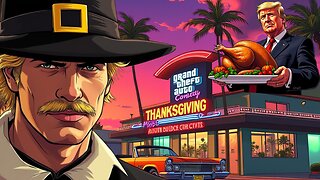 7:24:25
7:24:25
Rotella Games
1 day agoThanksgiving Side Missions & Hangout | GTA San Andreas
17.5K2 -
 LIVE
LIVE
MafiaTwin
3 hours agoFrist Stream On Rumble
237 watching -
 19:41
19:41
Neil McCoy-Ward
7 hours agoFinally! Some Good News Today... (& Happy Thanksgiving!)
709 -
 LIVE
LIVE
tacetmort3m
7 hours ago🔴 LIVE - (HAPPY THANKSGIVING!) BACK WITH MORE STALKER ACTION - STALKER 2 - PART 7
101 watching -
 58:05
58:05
The Tom Renz Show
3 hours agoThanksgiving In America 2024 - With Mark Sherwood
334 -
 1:13:41
1:13:41
DDayCobra
5 hours ago $7.38 earnedHappy Thanksgiving!
34.4K2 -
 42:24
42:24
Professor Nez
5 hours ago🚨Kamala's Staff CONFESSES to FRAUD! Trump is Already MAKING AMERICA GREAT AGAIN! 🇺🇸
68K94 -
 5:12:17
5:12:17
Akademiks
7 hours agoDrake Sues Universal Music Group over Kendrick Lamar 'Not Like Us' again!! Diddy Denied Bail!
81.5K10

